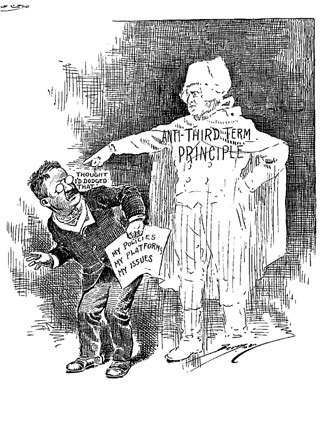
Interactions Among the Branches Note Quiz 2.5-2.8
Assessment
•
Kristin Gutierrez
•
History, Social Studies
•
12th Grade
•
18 plays
•
Medium
Improve your activity
Higher order questions
Match
•
Reorder
•
Categorization
.svg)
actions
Add similar questions
Add answer explanations
Translate quiz
Tag questions with standards
More options
10 questions
Show answers
1.
Multiple Choice
Which of the following may the president do to limit the power of Congress?
Neither sign nor veto the bill, allowing it to die
Refuse to allocate tax money to fund the law
Declare the law unconstitutional, thereby killing it
Persuade members of Congress to vote against the law
2.
Multiple Choice
Which of the following is an accurate comparison of the expressed powers of the President and powers of Congress?
President power: Appointing ambassadors
Congressional Power: Interpreting the Constitution
President power: Negotiating Treaties
Congressional Power: Ratifying treaties
President power: Issuing signing statements
Congressional Power: Levying taxes
President power: Pardoning impeached officials
Congressional Power: Impeaching officials
3.
Multiple Choice
Which of the following is an accurate comparison of the president's formal and informal powers?
Formal Powers: Setting the agenda for Congress
Informal Powers: Granting pardons
Formal Powers: Declaring war
Informal Powers: Delivering the State of the Union address
Formal Powers: Vetoing legislation
Informal Powers: Issuing executive orders
Formal Powers: Acting as Commander in Chief
Informal Powers: Appointing Supreme Court justices
4.
Multiple Choice
“The president may be convinced that a piece of legislation is unwise. But his judgment as to its un-wisdom is not a legal reason for his declining to execute it. (It may be a reason to veto it, and one of the objections to signing statements is that they are vetoes not subject to override.) And the president may have a definite view as to what the legislation means, and that view might include conclusions as to its constitutionality, but his is not the view that counts. He may be the commander in chief, but he is not the interpreter in chief.”
-Stanley Fish, "Who's Afraid of Presidential Signing Statements?" Source: New York Times
Which of the following statements best summarizes Fish’s argument?
The president should not execute laws he or she deems unconstitutional
Signing statements provide legal reasons for the president to decline to execute laws
Vetoes should be replaced with signing statements, since they are not subject to override
Signing statements go beyond the president’s expressed constitutional powers
5.
Multiple Choice
Which of the following statements is the most likely motivation for a president to issue an executive order?
To force Congress to create policy that fits the president's agenda
To achieve policy goals when a compromise cannot be reached with Congress
To increase the power of the presidency over presidential appointments
To create laws that cannot be changed or replaced overtime
6.
Multiple Choice
Use the passage below to answer the following question.
“That unity is conducive to energy will not be disputed. Decision, activity, secrecy, and despatch will generally characterize the proceedings of one man in a much more eminent degree than the proceedings of any greater number; and in proportion as the number is increased, these qualities will be diminished . . .”
-Alexander Hamilton, Federalist No. 70, “The Executive Department Further Considered,” 1788
Which of the following statements best summarizes Hamilton’s argument?
One person should run the executive branch because they will be able to act swiftly, decisively, and discreetly, which is necessary for the presidency
One person should run the executive branch because it will be too complicated for Congress if they have to negotiate with multiple people
Three people should run the executive branch because it is too much power for one person to hold
Three people should run the executive branch because its power to negotiate treaties with other countries should be distributed to multiple people

Explore this activity with a free account
Find a similar activity
Create activity tailored to your needs using
.svg)

Executive Branch
•
5th - 8th Grade

Congress
•
8th - 12th Grade

Constitution
•
8th Grade

Executive Branch
•
7th Grade

Checks and Balances
•
12th Grade

Constitution Review
•
6th - 8th Grade

Legislative Branch
•
6th - 8th Grade

Checks and Balances Between the Branches
•
8th Grade
